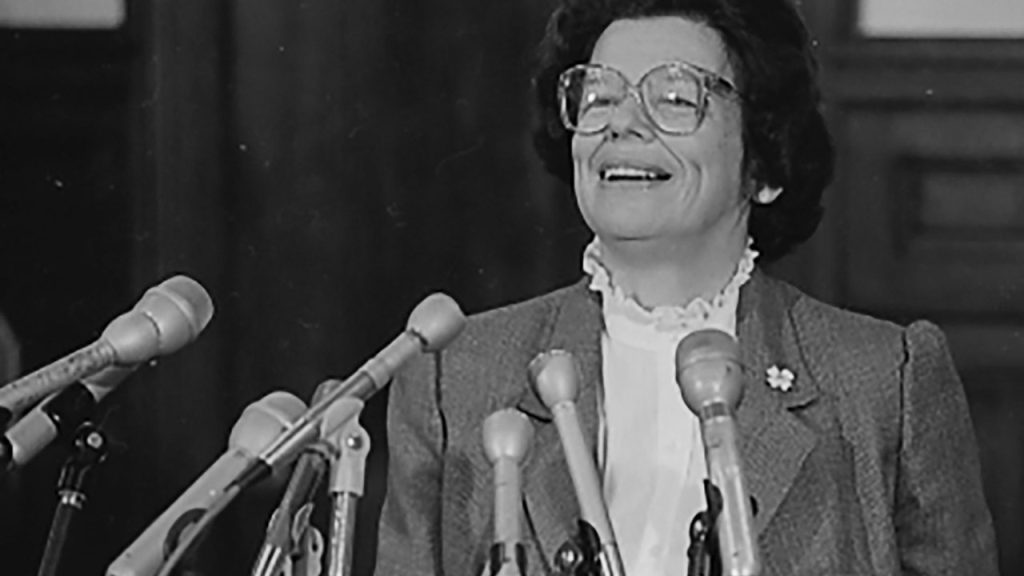Ellen Ash Peters, the first woman to serve as Connecticut’s chief justice, passed away at the age of 94. She had a distinguished legal career and was instrumental in the state Supreme Court’s landmark school desegregation ruling in 1996. Peters also was the first female faculty member at Yale Law School. Her passing was mourned by current chief justice Richard Robinson, who called her a fearless legal giant dedicated to upholding the rule of law.
Appointed to the state Supreme Court in 1978 by then-Gov. Ella Grasso, Peters became the first woman to serve on the court and later became its chief justice in 1984. She wrote the majority opinion in the Sheff v. O’Neill case, which found the segregation of Hartford-area schools to be unconstitutional. Peters emphasized the urgency of finding a remedy for the plight of Hartford’s schoolchildren and advocated for equal access to education for all.
Throughout her time on the Supreme Court, Peters presided over a variety of cases, including those involving the death penalty and property disputes. She was also a proponent of preventing gender and racial bias in the court system. Peters upheld the state’s ban on assault weapons in a 1995 ruling. On her last day as chief justice, she stressed the importance of the court embodying the pluralist spirit of America and being able to respond to the needs of the population.
Born in Germany in 1930, Peters and her family fled Nazi rule and emigrated to New York City. She went on to graduate from Swarthmore College and Yale Law School. At the age of 26, she became Yale Law School’s first female faculty member and the first woman to earn tenure there. Peters balanced her work on the Supreme Court with teaching law at Yale as an adjunct professor. The late U.S. Supreme Court Justice Ruth Bader Ginsburg commended Peters for inspiring generations of women law students.
Political leaders and legal experts praised Peters for her contributions to the legal field and her dedication to ensuring justice for all. Connecticut Governor Ned Lamont described her as a trailblazer who worked tirelessly to make the state’s courts fair and accessible. Former Chief Justice Chase Rogers highlighted Peters’ role in breaking barriers for women in the judiciary and serving as a role model for judges. Peters’ husband, Phillip Blumberg, who was a professor at the University of Connecticut School of Law, passed away in 2021. The couple lived in West Hartford.


